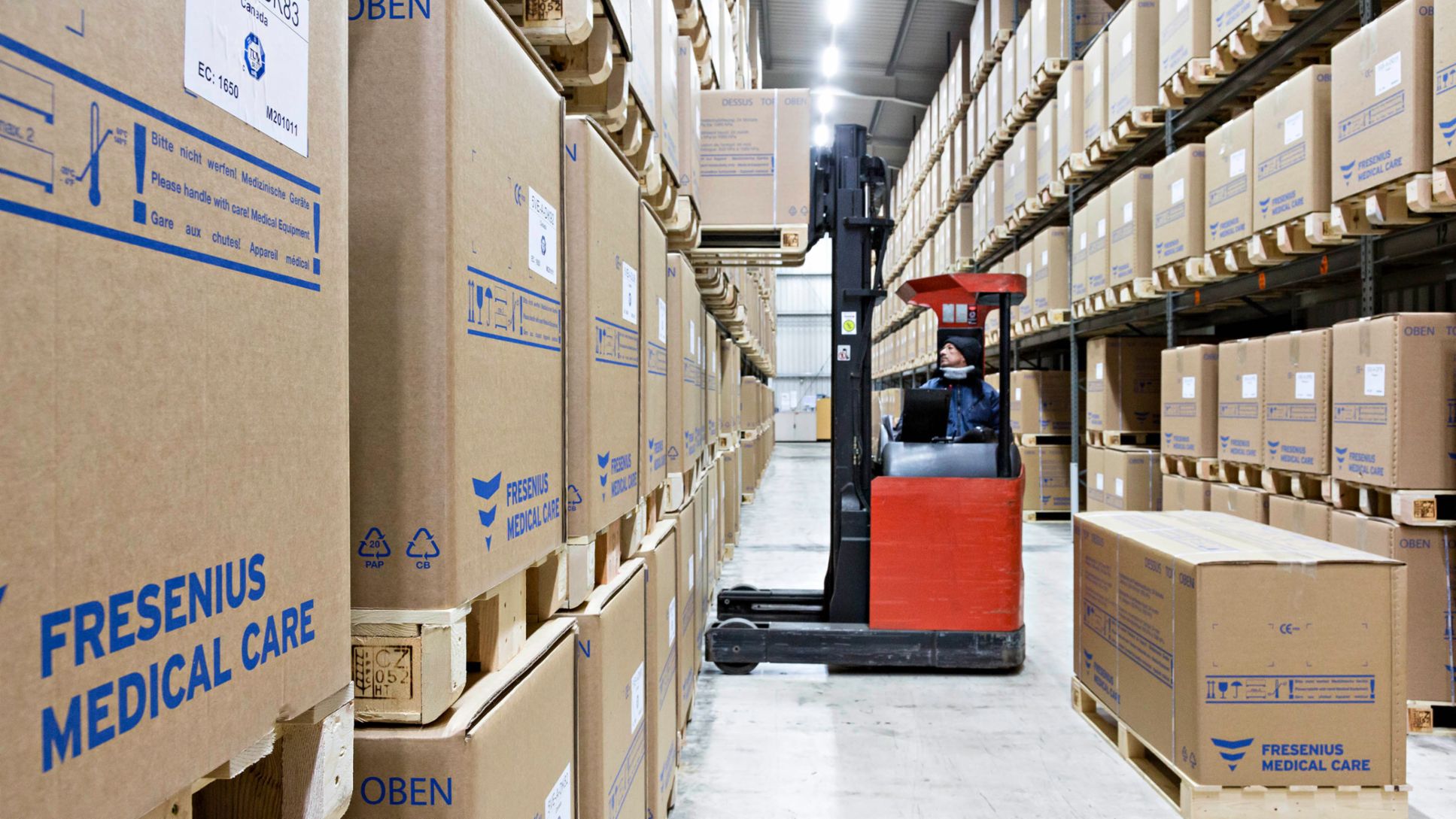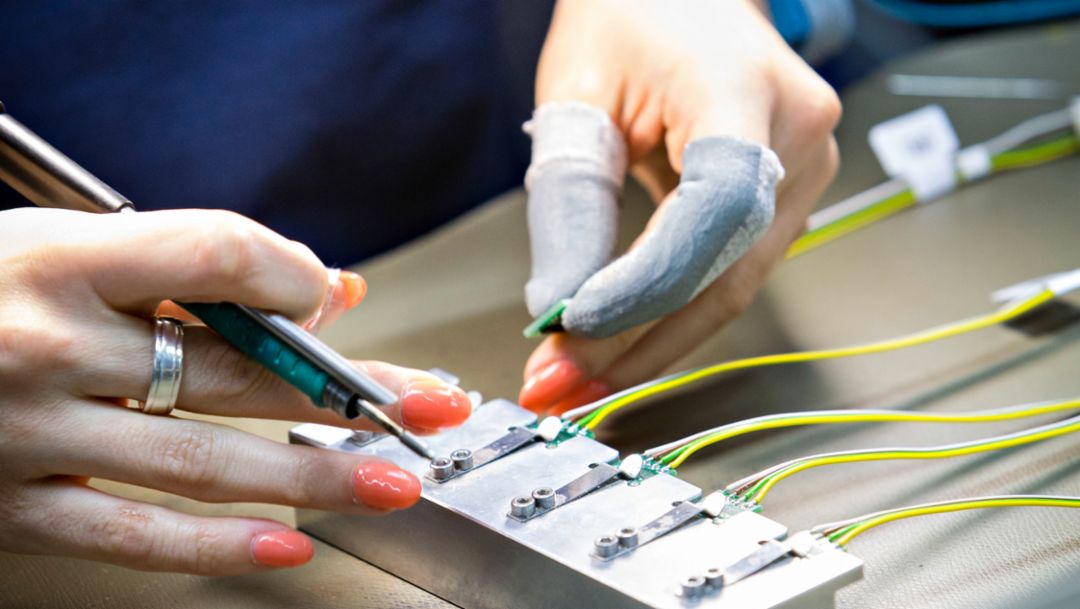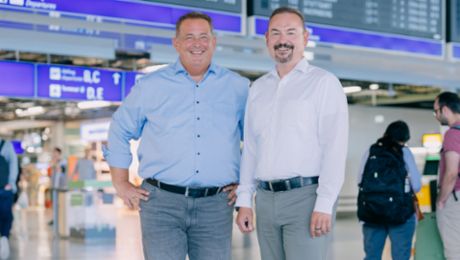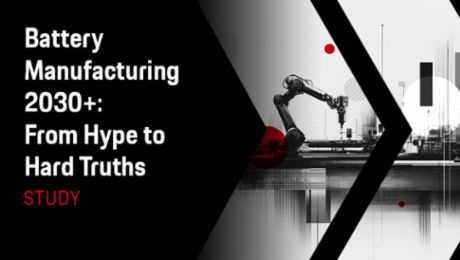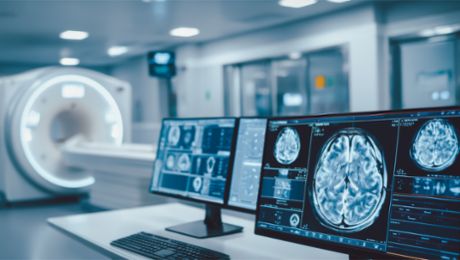It wasn’t all that long ago when kidney failure would quickly lead to death. This pair of organs detoxifies our bodies and keeps our blood clean. The importance of this job often only becomes apparent when a kidney stops working. Germany first started to provide widespread dialysis in the 1960s. Today this technology enables a growing number of people with kidney disease to enjoy a high quality of life, thanks above all to technical perfection in the blood-cleaning process.
“Eighty-seven thousand people in Germany have dialysis on a regular basis,” says Dr. Christoph Sahm, who directs the Schweinfurt site of Fresenius Medical Care (FMC). Listed on the Frankfurt Stock Exchange, the corporation is the leading supplier of products and services for people with chronic renal disease. Half of all the dialysis equipment in the world comes from Schweinfurt. Around 1,200 employees develop and build these special devices—from tubal systems to complete machines for hemodialysis or peritoneal dialysis. “Of the 2.6 million dialysis patients around the world, more than 50 percent are treated with our equipment,” notes Sahm, who has a doctorate in physics. The number of people who require dialysis is rising, which means that ever more dialysis machines are needed. In newly developed countries, people want better medical care—and access to dialysis. China, for example, has set itself the goal of providing dialysis to everyone in the country who needs it by 2020. It is the largest growth market for FMC.
Cost pressures are rising
At the same time, cost pressures are rising in the health care sector. Dialysis needs to be done three times a week, and each session lasts five hours. There are associated expenditures for hospital stays and ambulance transport. Dialysis patients are expensive for national health care systems, which are strapped for cash. Intensive efforts are therefore being made to reduce the cost of treatment. “At this point, sometimes all it takes is a ministerial decision to cut reimbursement rates to manufacturers by ten percent,” says Sahm. “That has a direct effect on our revenue and profit.”
Taking the USA as an example, expenditures for dialysis were cut by ten percent over the medium term, despite President Obama’s health care reform. That squeezed the margins for equipment manufacturer Fresenius Medical Care. In addition, price wars have broken out among medical equipment makers. New manufacturers are entering the market— from As a, for example—some of whom simply copy the equipment made by competitors.
Health comes first—and that includes financial health. All of this presents a major challenge to Fresenius Medical Care. In order to meet the growing need for dialysis equipment worldwide, the FMC plant in Schweinfurt wants to double its production volume by 2020. At the same time, it wants to reduce the indirect costs per dialysis machine by half in order to accommodate the languishing budgets of its buyers. To attain this ambitious aim, FMC invited the experts from Porsche Consulting on board.
In addition to production and logistics, the consultants paid special attention to indirect areas such as IT, personnel, purchasing, and customer service. Indirect costs represent a major item on the expenditure side. When production increases, these areas have to grow too, or that at least is the received wisdom. For the Porsche team, however, there is nothing that cannot be questioned. How much do the indirect units really have to grow? Where is it possible to work more effectively? “We searched every niche for potential ways to save unnecessary costs and increase production,” reports Christoph Sahm.
Focus on core areas
Support units create the framework conditions that enable production to function smoothly. This approach has not been changed. But together with the Porsche consultants, the company has examined the core areas of competence for its indirect units. Tasks that can be done more cheaply but with a comparable level of quality by external service providers have been outsourced. The company’s own areas of expertise, however, are being promoted and efficiently structured. For example, a worldwide control system for product modifications from development to the conveyor belt is to be managed centrally by an IT system. This eliminates lengthy and resource-intensive loops by which suggestions need to be evaluated sequentially by all the indirect areas involved, such as finance, quality, and purchasing.
With respect to the product engineering process, Fresenius Medical Care wants to involve employees from the different specialized areas at an early point in development. Groups known as simultaneous engineering teams are now working more closely together on an interdisciplinary basis to ensure that all product requirements are taken into account from the start. This helps prevent complex modifications or retrospective improvements to products that have already entered series production, which in turn also lightens the load on the indirect areas.
Porsche Consulting developed a simulation model
All in all, FMC did in fact succeed in creating the conditions to save 50 percent of the overhead costs per dialysis machine. “Growth without growing, to further extend the competitive advantage—that is the main aim,” confirms Roman Hipp, Partner at Porsche Consulting. For strategic orientation, Porsche Consulting developed a simulation model that functions like a crash barrier on the freeway. It enables Fresenius Medical Care to calculate different scenarios leading up to the year 2020—including the best possible trajectory, more modest ones, and the least favorable alternative. It incorporates factors such as wage increases, currency and price fluctuations, and the actual production figures for the machines.
This model will help FMC remain on course whatever may happen. Based on the market situation and how production figures develop, the corporation can respond in a flexible manner. “We can now see precisely when we need to expand or reduce our workforce or transfer people from one area to another in order to handle our growth,” explains Sahm. “This transparency enables Fresenius Medical Care to place its skilled employees in the indirect areas where they are needed.” In different cultures and ages, kidneys have variously been considered the seat of our reflection, conscience, logic, emotion, and judgment. As such, and inspired by the focus of its work, FMC in Schweinfurt is showing a fine sense for the right balance in its quest for growth.
Info
Text first published in „Porsche Consulting - THE MAGAZINE", Issue 16
Author: Haiko Prengel // Photos: Olaf Hermann
